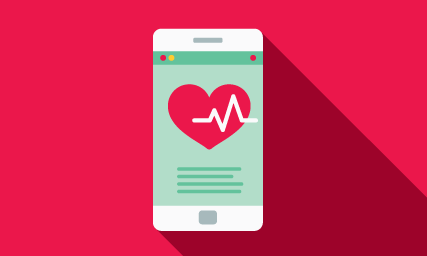Many heart patients aren't taking their medicine. Are they at greater risk for another heart attack?
Imagine: the shortness of breath and the occasional chest pain you’ve been feeling intensifies. You’re rushed to the emergency room where doctors decide you need bypass surgery to survive.
Then, following surgery, your cardiologist prescribes five medications you’ve never taken before. You feel brain-fogged, exhausted, achy and depressed. Is it part of the recovery process or the new drugs? Do you have to take all those pills?
Proper Medication Is Necessary
Results of a study published by the American College of Cardiology show that proper medication can reduce the incidence of a second heart attack or stroke by 50%. But researchers who conducted that study at the Cardiovascular Institute at Mount Sinai in New York found less than half – just 43% – followed their medication plans in the year following their heart attacks.
“I don’t think we as physicians do a very good job at clearly explaining to our patients exactly what the role of a medication is,” said Dr. S. Hinan Ahmed, an interventional cardiologist at San Antonio’s University Hospital and an associate professor of cardiology at UT Health San Antonio.
Dr. Ahmed believes a lack of knowledge about a drug and the fact that it may be costly are the two greatest barriers to ensuring patients comply with their medication plans.
Beta Blockers and Statins
Among the frequently prescribed classes of heart medications that raise patient concern are beta-blockers and statins.
Beta-blockers are used to lower blood pressure and improve blood flow by blocking the effects of adrenaline which increases in stressful situations. Side effects may include depression, breathing problems and dizziness.
Statins help your liver remove cholesterol that may damage your heart. They’ve been linked to cases of severe muscle damage, liver problems and the development of diabetes.
Dr. Ahmed says severe side effects are rare, and statins and beta-blockers are generally so effective patients should give them a try while being alert for any problems.
Finding the right combination of meds isn’t an exact science. Recent research published in the Annals of Internal Medicine found that a significant number of heart patients are not being properly assessed and are probably taking too much or too little medication.
Dr. Ahmed says many cardiologists use the American College of Cardiology guidelines for determining which heart medications to prescribe.
Tips for a Better Doctor's Visit
He stresses the need for good doctor-patient communication:
- If you are taking medicine for several conditions. For example, heart disease, diabetes and acid reflex–ask your primary care doctor to look at the complete list for how they might interact. Also discuss the medications with your cardiologist and members of your medical team addressing your specific health conditions.
- Take a list of your medications to your appointments.
- Keep a written log of any side effects and when they occurred.
- Don’t stop taking a medication without your doctor’s supervision.
Not sure what to ask your physician? Check out this list of questions on the University Health website. They’ll help in promoting an open conversation and give you a better understanding of your treatment options.

Heart disease is the leading cause of death for both men and women.
Our free online risk assessment only takes a few minutes. It will help you better understand your risk of developing heart disease and how you may be able to lower it.



